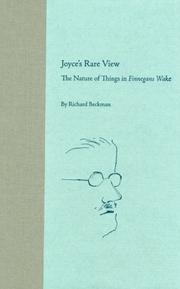| Listing 1 - 10 of 1479 | << page >> |
Sort by
|
Book
ISBN: 1476632812 9781476632810 9781476669175 1476669171 Year: 2018 Publisher: Jefferson, North Carolina
Abstract | Keywords | Export | Availability | Bookmark
 Loading...
Loading...Choose an application
- Reference Manager
- EndNote
- RefWorks (Direct export to RefWorks)
"Among the 12 disciples of Jesus, perhaps none has inspired more magnificent art--as well as political upheaval--than Saint James the Greater. He was the first apostle to be martyred. He remains the patron saint of pilgrims to the shrine of Santiago de Compostela. His legacy has bequeathed a tradition of Western art over nearly two millennia"--
Book
ISBN: 0813940494 9780813940472 0813940478 9780813940496 0813940478 9780813940489 0813940486 Year: 2017 Publisher: Charlottesville
Abstract | Keywords | Export | Availability | Bookmark
 Loading...
Loading...Choose an application
- Reference Manager
- EndNote
- RefWorks (Direct export to RefWorks)
Book
ISBN: 8884539080 8884539099 9788884539090 Year: 2008 Publisher: Firenze : Firenze University Press,
Abstract | Keywords | Export | Availability | Bookmark
 Loading...
Loading...Choose an application
- Reference Manager
- EndNote
- RefWorks (Direct export to RefWorks)
A Portrait of the Artist as a Young Man presents a non-linear compositional progression, characterised by continual fractures, bifurcations and revisions; the genetic dossier includes pre-compositional notes and works that were never published, such as Epiphanies, A Portrait of the Artist and Stephen Hero. The genetic analysis of this long process of writing, the documentation of which covers a period of around fourteen years, reveals not only how the Portrait was conceived and composed, but also Joyce's evolution as a writer from the very first evidence of his literary activity. This new perspective on Joyce's mode of composition opens the way to a range of potential interpretations of the individual texts, as well as methodological and theoretical insights regarding genetic criticism.
Book
ISBN: 1608466469 1608466663 Year: 2018 Publisher: Chicago, Illinois : Haymarket Books,
Abstract | Keywords | Export | Availability | Bookmark
 Loading...
Loading...Choose an application
- Reference Manager
- EndNote
- RefWorks (Direct export to RefWorks)
Book
Year: 2017 Publisher: Ipswich, MA : Great Neck Publishing,
Abstract | Keywords | Export | Availability | Bookmark
 Loading...
Loading...Choose an application
- Reference Manager
- EndNote
- RefWorks (Direct export to RefWorks)

ISBN: 0813036461 9780813036465 9780813030593 0813030595 Year: 2007 Publisher: Gainesville University Press of Florida
Abstract | Keywords | Export | Availability | Bookmark
 Loading...
Loading...Choose an application
- Reference Manager
- EndNote
- RefWorks (Direct export to RefWorks)
Richard Beckman argues that readers of Finnegans Wake must develop a new method of reading that flows from the text itself. Focusing on the mode of perception in the Wake --seeing the world obliquely because that is often the only way to get at the nature of things--Beckman maintains that Joyce's satire depends on looking at the public scene from behind, a view at the same time vaudevillian and philosophic.
Book
Year: 2014 Publisher: [Place of publication not identified] Princeton University Press
Abstract | Keywords | Export | Availability | Bookmark
 Loading...
Loading...Choose an application
- Reference Manager
- EndNote
- RefWorks (Direct export to RefWorks)
Book
Year: 2017 Publisher: [Place of publication not identified] : Great Neck Publishing,
Abstract | Keywords | Export | Availability | Bookmark
 Loading...
Loading...Choose an application
- Reference Manager
- EndNote
- RefWorks (Direct export to RefWorks)
Presents the text of the author's second inaugural address as president of the United States, which was delivered in March 1821.
Book
ISBN: 1463236441 9781463236441 1463204019 Year: 2014 Publisher: Piscataway, NJ
Abstract | Keywords | Export | Availability | Bookmark
 Loading...
Loading...Choose an application
- Reference Manager
- EndNote
- RefWorks (Direct export to RefWorks)
This book examines the religious epistemologies of Søren Kierkegaard, John Henry Newman, and William James in the light of contemporary challenges to religious faith. They defended the right of persons to embrace religious beliefs that are not strictly warranted by empirical evidence and logical argumentation. Faith must not be hampered, they argued, by the demands of reason narrowly conceived. Paul Sands notes, however, important differences in the way each relates faith to reason. Sands examines the religious epistemologies of Kierkegaard, Newman, and James in the context of two "givens" characteristic of early twenty-first century culture, namely, the intellectual hegemony of probabilism and the pluralization of the Western mind.
Book
Year: 1986 Publisher: Madison, Wis. : University of Wisconsin Press,
Abstract | Keywords | Export | Availability | Bookmark
 Loading...
Loading...Choose an application
- Reference Manager
- EndNote
- RefWorks (Direct export to RefWorks)
| Listing 1 - 10 of 1479 | << page >> |
Sort by
|

 Search
Search Feedback
Feedback About UniCat
About UniCat  Help
Help News
News